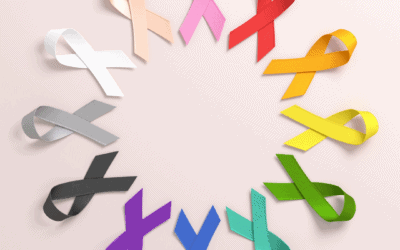By: Kathryn Al-Dhafeeri
There was an article in the Guardian at the weekend with the headline ‘Athletes have poor teeth despite brushing twice a day’ (1)
The article is about British Olympic and professional athletes. It states they are damaging their teeth by regular use of sports drinks, energy bars and gels. These findings are from the British Dental Journal, which builds on work previously carried out by UCL Eastman Dental Institute (London).
The British Dental Journal (BDJ) also showed that 94% of athletes brushed their teeth twice a day, compared with 75% of the general public (in the UK). How does the Australian public compare? Australia’s Oral Health Tracker (an Australian Dental Association initiative) states that only 50% of Australian Adults brush twice a day. The survey also showed that over 90% of Australian adults surveyed show tooth decay in their permanent teeth to some extent (1). These findings show that the athletes were brushing their teeth more than the general population, but were still experiencing tooth decay.

There are many sports drinks out there on
the market.
Sports Nutrition
Sports drinks, gels and bars have become very popular in Australia. You see them everywhere from the supermarket to the gym, from the cycle shop to running events. You only have to go along to something like Bridge to Brisbane or the Brisbane Marathon and you’ll see these products. I even saw a whole shelf dedicated to them in a Brisbane cycle shop on the weekend. Energy drinks, gels and bars are big business. The industry is dominated by multinational companies like Pepsi and drug companies like GSK. In the United States, sales of sports drinks exceed $1.5 billion a year. According to an article in the Australian Dental Journal (ADJ) in the Australasian region, which representing only 0.4% of the global population, we account for 1.1% of the global sports beverage market. This is disproportionately high.
Do we need sports drinks?
I read that there is no evidence there has ever been a death at a marathon due to dehydration. However, at the 2002 Boston Marathon, a healthy 28-year-old woman collapsed a few miles short of finishing. She died later that day due to hyponatremia. This is when there there is too little sodium in the blood. In this case it was brought on by drinking too much fluid before and during the marathon. According to the British Medical Journal, 16 marathoners have died and more than 1,600 have become critically ill due to over-hydration and hyponatremia.

Water is all that’s required during fun runs.
So why are we consuming so much? There’s a lot of aggressive marketing around hydration and electrolytes. Then there are your gels, energy bars, protein bars, protein shakes. Do we really need all this?
The team at the BMJ states that sports drink marketers have cast doubt on us using water to stay hydrated (2), despite this being the norm for thousands of years! These sports drinks are now becoming the norm for kids, and are completely unnecessary for the weekend soccer game, a long cycle or even a marathon.

Are energy bars really necessary?
What’s in them?
Sports drinks are generally high in sugar and are acidic. This is the ingredient list from a sports recovery drink, for your post-workout recovery:
- Water, hydrolysed whey protein (milk), liquid sugar, hydrolysed collagen, phosphoric acid, natural flavours, citric acid, sodium sulphate, sodium chloride, sucralose, colour, potassium.
It has two different types of sugar, and two different acids.
Here’s an ingredient list of a sports gel:
- Maltodextrin (Glucose Polymers), Filtered Water, Fructose, GU Amino Blend (Leucine, Valine, Histidine, Isoleucine), Sodium And Potassium Citrate, Natural Peppermint Extract, GU Antioxidant Blend (Natural Vitamin C And Vitamin E), Citric Acid, Calcium Carbonate, Sea Salt, Contains Preservatives [Sodium Benzoate, Potassium Sorbate], Fumaric Acid, Gu Herbal Blend [Chamomile, Ginger], Pectin.
Again we have two sugars and multiple acids.
Sports drinks and your teeth
When sugars and/or acids come into contact with tooth enamel, it will cause damage. Sugars are the primary food source for the bacteria on your teeth. These bacteria metabolise the sugars and produce acids. These acids cause the tooth structure to break down, which is what we call tooth decay.
Acids that we are drinking, in the form of sport drinks, fruit juices or soft drink, will soften tooth enamel and wear it away. The pH (acid/alkali measurement) of our mouths should be around 7, which is pH neutral. Tap water is pH 7. When we eat or drink, our mouths will tip towards the acid side, which the compounds in our saliva will help to neutralise and bring the pH back to 7. We call this buffering. If we stay acidic for too long, damage to the teeth will occur.
Now image you are drinking a sports drink, which can have a pH of as low as 2.9 (Coca-cola is around 2.5). You’re sipping it over a long period, perhaps throughout your 1 hour gym work-out. It’s very difficult for your saliva to bring that back up to neutral any time soon. To make matters even worse, when you exercise, you tend to breathe through your mouth. This dries your mouth out. Now we have less saliva. The pH has been lowered to 2.9 and now there is no saliva to buffer this and bring it back to neutral. The risk of tooth damage rises exponentially.

Teeth healthy sports nutrition – water and
fresh fruit.
Can’t I just brush more?
If you are consuming a lot of these foods and drinks, no amount of brushing will balance out the damage. Remember that study I mentioned at the beginning – the athletes were brushing their teeth more than the general population, but still had high rates of decay and erosion. In fact, brushing after consuming something acidic will cause further damage, by abrading the already softened surface of the teeth.
It’s not just our teeth that get affected. Poor oral health can have a knock-on affect on the rest of our bodies. There was a publication in the British Journal Of Sports Medicine where they studied 187 professional UK football (soccer) players. Dental examinations and questionnaires were carried out (3). They found active tooth decay in 37% players and a massive 53% had dental erosion. 20% of them reported that their oral health had a negative affect on their quality of life, with 7% saying it affected their training performance. This links in to another study out of Australia which reported that those with poor oral hygiene and untreated dental disease could be sacrificing their fitness goals. Professor Eberhard, a dental scientist, researcher and Chair of Lifespan Oral Health in Sydney stated that those with inflammation of their gums would be reducing the positive effect of sport.
So What Can I do When Exercising?
- Drink water while exercising. This will re-hydrate you and allow saliva to do it’s job.
- Visit your dentist regularly – to pick up on any early warning signs when they are easier to fix, and to give you tailored strategies to fit in with your lifestyle.
- Snack on fresh fruit and nuts. After any fun run, getting that banana at the end was always a highlight!

Fruit as a snack when on a cycle.
References:



